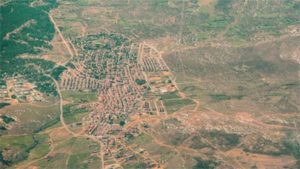
Searching Geospatial Data Gets Easier

(lumokajinioj/Shutterstock)
Geo-location data is among the next wave of content to be churned by search engines as public access to more geospatial data becomes widely available.
Several new approaches have emerging to both provide easier access to free geospatial data along with new tools for parsing that data by place name.
Responding to what is says is growing enterprise demand for geospatial search capabilities, a search engine specialist this week is launching a platform designed to scour and provide access to millions of pieces of geospatial and other location-based data.
The company, Voyager Search of Redlands, Calif., argues that conventional search engines have difficulty extracting GIS (geographic information systems) data embedded in billions of web pages. The company’s platform dubbed VoyagerODN provides access to free location-based data that can be searched by place name, keyword or browsing content collection.
The geospatial search engine seeks to tap into the proliferating number of portals and FTP sites created to share spatial content, or what the company calls an “ecosystem of repositories.” The new platform seeks to deliver unified searches across the growing amount of geospatial data.
Voyager Search said Monday (June 26) its approach addresses heightened enterprise demand for speedier access to public geospatial data alongside internal databases. Hence, it spent about a year collecting and curating source content to make geospatial data more accessible.
Among the earlier users of the geospatial search engine is the World Wildlife Fund for Nature, which is using the Voyager Search platform in combination with existing geospatial databases.
The new platform is among a growing list of search engines targeting emerging geospatial data. Earlier this month, a government contractor based in McLean, Va., said its mobile app described as a geographic “name search engine” was selected under a procurement initiative launched by the U.S. National Geospatial Intelligence Agency.
Designed as a mobile app to boost access among military users, the tool is based on Geographic Services Inc.’s proprietary phonetic search engine that allows users to search by place names anywhere in the world and across different languages using a query system based on pronunciation.
The company said its technology enables “fuzzy” location searches based on “a place name’s pronunciation, rather than its spelling.”
The app is designed to improve location search results by eliminating the need to know variations in spelling. It also accounts for misspelled names or names with letters or sounds not part of the English language, explained Keyvan Rafei, company president and CEO.
The cloud-based “geonames” tool incorporates data mining along with patented search technology that takes into account what the company calls “cultural knowledge.”
The search tool was recently added to a list of applications under the agency’s Innovative GEOINT Application Provider Program, launched as a way to connect the agency with the growing number of applications developers.
Recent items:
The Here and Now of Big Geospatial Data
5 Ways Big Geospatial Data is Driving Analytics in the Real World



























